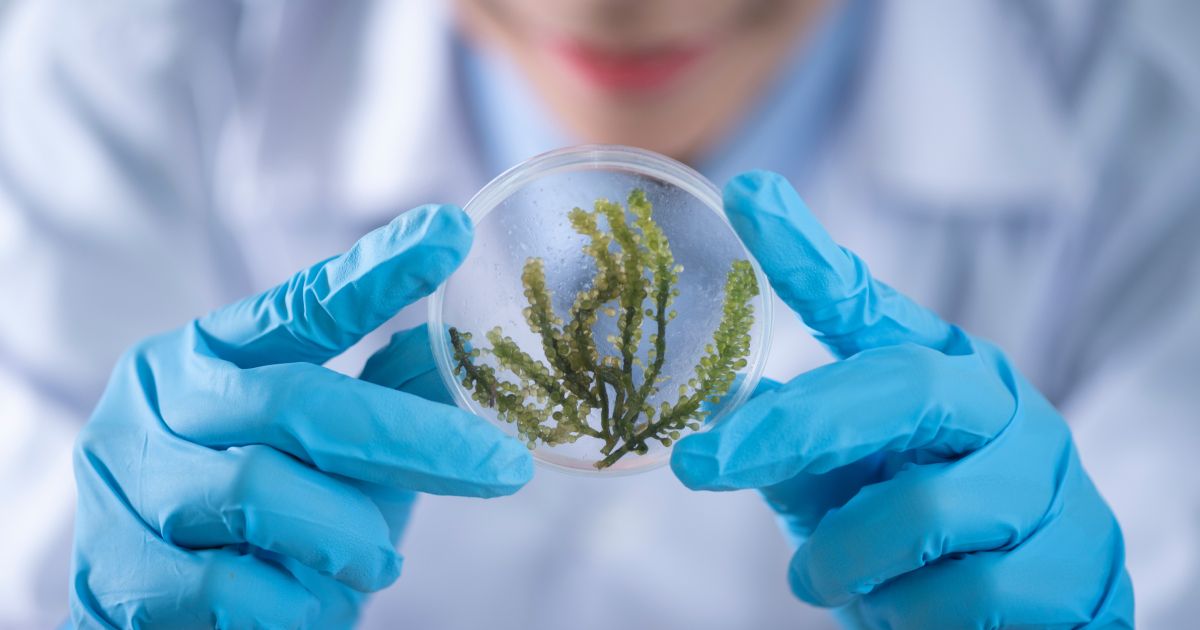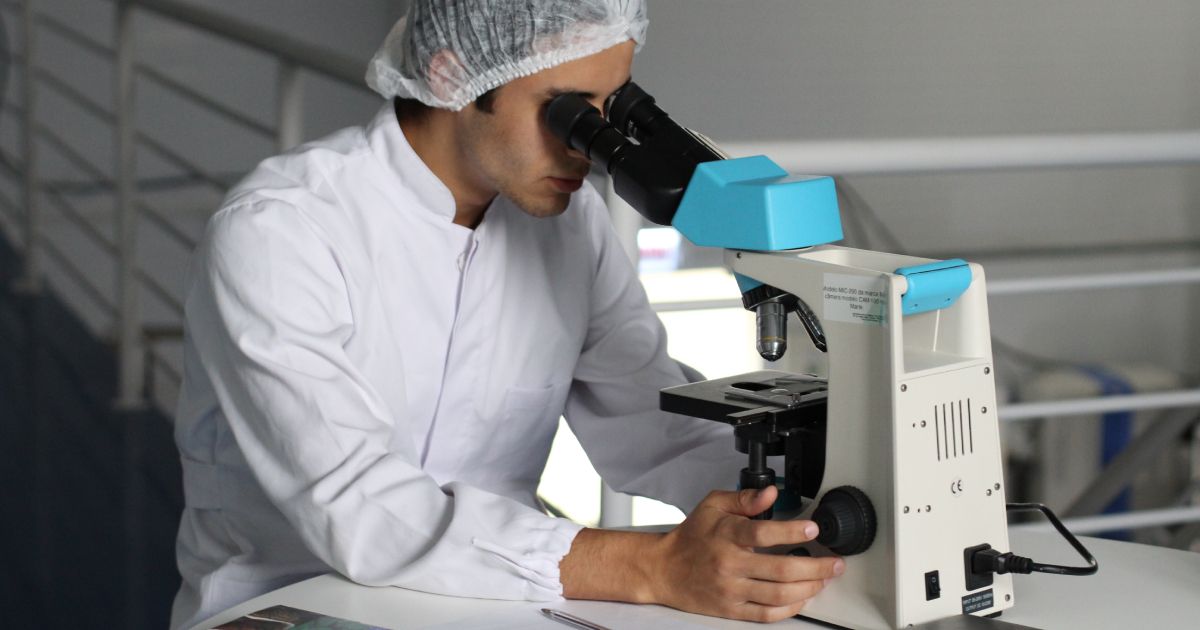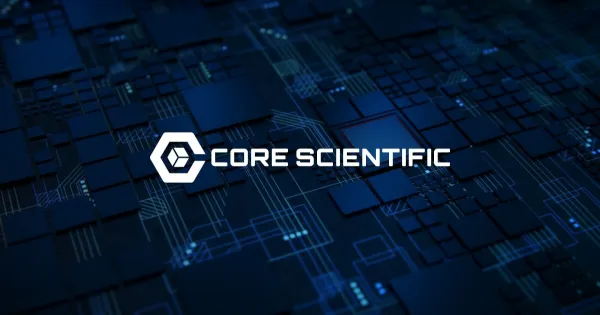7 Future Trends in Biotechnology

Biotechnology, a field at the intersection of biology and technology, has been rapidly advancing, revolutionizing various industries including medicine, agriculture, and environmental science.
As we look ahead, several key trends are poised to shape the future of biotechnology, driving innovation and transforming the way we approach scientific research, healthcare, and beyond.
1) Precision Medicine and Personalized Therapies

In the realm of biotechnology, an exciting frontier emerges as personalized medicine takes center stage in the future of healthcare. Remarkable strides in genomic sequencing and molecular profiling are empowering healthcare experts to craft treatments uniquely suited to each patient's genetic composition, lifestyle, and medical background.
This revolutionary approach, known as precision medicine, is a game-changer in the healthcare landscape. It not only maximizes the effectiveness of treatments but also minimizes potential side effects, ushering in a new era of individualized care.
Precision medicine's potential impact is vast, promising to transform the way diseases are diagnosed, managed, and treated. By delving into the intricacies of an individual's genetic makeup, healthcare professionals can tailor interventions to target the underlying causes of diseases, resulting in more accurate diagnoses and improved treatment outcomes.
As biotechnological advancements continue to pave the way for a deeper understanding of the molecular basis of illnesses, precision medicine is set to revolutionize the healthcare ecosystem, ultimately providing patients with safer, more effective, and personalized medical care.
2) Gene Editing and CRISPR Technology

In the world of biotechnology, gene editing technologies, with CRISPR-Cas9 at the forefront, have triggered a transformative shift in the way we engineer and manipulate genes. The remarkable precision and simplicity of the CRISPR-Cas9 system have significantly broadened the horizon of possibilities for addressing genetic disorders and diseases.
Researchers are harnessing this powerful tool to edit genes with unprecedented accuracy, offering new avenues for therapeutic interventions that were once unimaginable. The ongoing strides in this field hold tremendous potential for revolutionizing medical treatments and rewriting the narratives of previously incurable conditions.
The revolutionary nature of CRISPR-Cas9 is not limited to genetic disorders alone. The technology's remarkable versatility has opened doors to potential advancements in areas such as agricultural and environmental applications. Scientists are exploring the use of CRISPR to engineer crops with enhanced nutritional value, resilience to climate change, and improved yields, which could play a pivotal role in addressing global food security challenges.
Moreover, the ability to precisely manipulate genetic material offers opportunities for groundbreaking discoveries in various scientific disciplines, highlighting the transformative influence of gene editing technologies on both human health and the environment.
3) Synthetic Biology and Bioengineering

The convergence of biology and engineering has given birth to the dynamic field of synthetic biology. This groundbreaking discipline involves the deliberate design and construction of biological components and systems with the aim of achieving specific functions.
Scientists are harnessing the principles of genetic engineering, molecular biology, and computational modeling to engineer living organisms to perform tasks beyond their natural capabilities. The applications of synthetic biology are remarkably diverse, encompassing the creation of biofuels, the production of pharmaceuticals, the development of sustainable materials, and even the design of novel bioproducts with unique properties.
One of the driving forces behind synthetic biology is the ability to customize and reprogram living systems for practical applications. By rewiring biological circuits and manipulating genetic pathways, researchers are creating living organisms that can carry out tailored tasks, which could have profound implications across industries. For instance, synthetic biology holds promise for sustainable agriculture by enabling the engineering of crops that require fewer resources, exhibit increased resilience to pests and diseases, and produce higher yields.
Moreover, the potential to synthesize biofuels from renewable resources using engineered microorganisms has the potential to revolutionize the energy landscape, contributing to reduced carbon emissions and a more sustainable future.
4) Biopharmaceuticals and Therapeutic Advancements

The biopharmaceutical landscape is undergoing a transformative shift as cutting-edge therapies like monoclonal antibodies, cell therapies, and gene therapies redefine the treatment paradigm for a wide range of medical conditions.
Monoclonal antibodies, designed to target specific molecules involved in disease pathways, have gained prominence as effective treatments for conditions such as cancer and autoimmune disorders. These therapies offer a precision approach, minimizing damage to healthy cells while maximizing therapeutic impact.
Cell therapies, on the other hand, involve harnessing the potential of a patient's own immune cells or stem cells to combat diseases. CAR-T cell therapy, a remarkable example in this realm, involves modifying a patient's T cells to recognize and destroy cancer cells. This breakthrough approach has shown remarkable success in treating certain types of leukemia and lymphoma.
Similarly, gene therapies are making strides in addressing genetic disorders by delivering functional copies of genes to correct underlying genetic mutations. These therapies have the potential to provide long-lasting or even curative benefits for conditions that were previously considered untreatable.
These advancements are not only expanding the treatment options available to patients but also ushering in a new era of precision medicine, where therapies are tailored to an individual's genetic makeup and specific disease profile. The ongoing research and development in the biopharmaceutical sector continue to pave the way for innovative therapies that hold the promise of improving patient outcomes and quality of life.
5) Digital Biotechnology and Bioinformatics

The convergence of biotechnology and digital technologies is giving rise to a transformative field known as bioinformatics. By harnessing the power of advanced computational models, machine learning algorithms, and data analytics, bioinformatics is revolutionizing how we interpret and utilize biological information.
With the immense volume of genomic data available, bioinformatics plays a crucial role in identifying patterns, biomarkers, and genetic variations that can provide insights into diseases and potential treatment strategies.
In the realm of drug discovery and development, bioinformatics enables researchers to sift through vast datasets to identify potential drug candidates and predict their interactions with biological systems. This accelerates the drug development process by narrowing down the candidates that are most likely to succeed.
Additionally, bioinformatics is instrumental in systems biology, where researchers model and simulate complex biological systems to better understand their behavior and predict responses to different conditions. This integrated approach allows for a comprehensive understanding of biological processes, disease mechanisms, and potential interventions, fostering innovation across various sectors of biotechnology and healthcare.
6) Sustainable Agriculture and Bio-Based Materials

Biotechnology is emerging as a key player in tackling some of the world's most pressing challenges, including those related to food security and environmental sustainability.
Genetically modified crops engineered for resistance to pests, diseases, and harsh environmental conditions are revolutionizing agriculture by enhancing crop yields and reducing the need for harmful chemical interventions. These biotech-enhanced crops have the potential to address food shortages and promote sustainable farming practices, critical in a world facing a growing population and changing climate.
Furthermore, biotechnology is driving innovation in the development of bio-based materials that have the potential to reshape industries and promote environmental stewardship. Biodegradable plastics made from renewable resources offer a solution to the plastic pollution crisis, reducing the reliance on fossil-fuel-derived plastics that contribute to environmental degradation. Sustainable textiles produced from bioengineered fibers, such as spider silk proteins, offer an eco-friendly alternative to traditional fabrics and materials.
The integration of biotechnology into these sectors underscores its role in creating more sustainable and resource-efficient solutions to longstanding global challenges.
7) Environmental Biotechnology and Bioremediation

Biotechnology is proving to be a valuable ally in the battle against environmental challenges. Bioremediation, a technique that utilizes microorganisms to break down pollutants, is emerging as a powerful tool to restore contaminated soil and water resources.
By harnessing the natural capabilities of bacteria and other microorganisms, bioremediation offers a sustainable and cost-effective approach to cleaning up hazardous substances and restoring ecosystems that have been affected by pollution.
Moreover, biotechnology is driving the development of greener and more sustainable processes across various industries. Enzymes and microbial catalysts are being employed to replace traditional chemical processes in manufacturing, reducing waste generation and energy consumption. This innovation not only minimizes the environmental impact of industrial processes but also contributes to more efficient and eco-friendly production methods.
Biotechnology's potential to revolutionize the way industries operate underscores its significance in promoting a more sustainable and harmonious relationship between human activities and the environment.
Final Thoughts
In conclusion, the future of biotechnology is brimming with possibilities that have the potential to reshape healthcare, agriculture, industry, and the environment.
As researchers and innovators continue to push the boundaries of what's possible, these trends are expected to drive transformative changes that benefit society as a whole. From personalized medicine to sustainable solutions, biotechnology is poised to lead us into a new era of scientific discovery and innovation.





